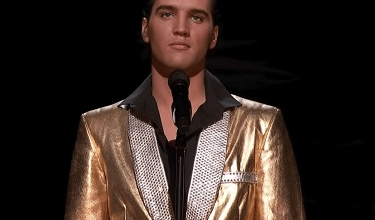Experts believe that trusting machines is a step into a new world

A Coruña, Jun 3 (EFE).- Going to lunch 300 kilometers away in 2025 in an air taxi and arriving in an hour and relying on machines when it comes to guessing what is best for everyone is not fiction but are steps towards a change of cycle that will be based on trusting technology, according to scientists.
At the Palexco Exhibition and Conference Center in A Coruña in northwestern Spain there were many discussions on Thursday and Friday about what humanity will be like in just a few years, the main theme of all the presentations at the Ecosystems 2030 technology forum, attended by 150 experts, opinion leaders and senior executives of multinational companies.
Google’s Senior Director of Research Strategy, Pilar Manchón, said in her speech on the closing day that there is no doubt that people’s trust in machines “will make a difference” to achieve success, especially in devices with voice recognition that converse with people.
These, she said, have evolved from fully programmed responses to artificial intelligence that generates more spontaneity. “We don’t want to kill the machine’s creativity,” she argued.
These devices have reached the point, she said, of being able to recognize even images, so now the challenge is to move towards feelings and the sensory area. In this sense, Manchón expects significant progress to be made by 2030 when there will be a “cognitive approach to emotions.”
“Trust is the key, it is the factor that will determine the difference, not what you can do but how to achieve the user’s trust,” she said.
She illustrated this in her talk with a question to a device and its recommendation about a purchase. The moment the person concerned thinks “I trust the machine, it knows what it needs to improve,” that will be a huge triumph, she concluded.
Amazon Web Services Managing Director in Spain and Portugal, Miguel Álava, defended the need to “popularize innovation” and “make it accessible to everyone.”
Health crises such as the Covid-19 pandemic have shown that “agility is the only competitive advantage that is sustainable over time.” And this agility is, he said, “based on innovation supported by technology.”
The head of cybersecurity for the United Arab Emirates government, Mohamed Al-Kuwaiti, focused his presentation on the effect of emerging technologies and pointed out that there is huge “momentum,” a concept commonly used in politics for something that is trending or making a strong entrance.
Siemens Customer Services CEO Karen Florschuetz went straight to the point by specifying that industrial ecosystems “are an expectation, but also a reality.”
In the business world, digitalization is, in her view, a great opportunity, especially to learn more about customers, as much of their data is on the Internet.
But she does not forget that security is another issue, which she considers to be the second biggest challenge today.
Brelyon CEO Barmak Heshmat has spoken at length about the metaverse, which he believes needs three elements to succeed: convenience, immersion and performance.
Its implementation will require a paradigm shift in elements such as video games, which are currently addictive but not immersive, so they need to evolve in that sense, he said.
Samsung Executive Vice President Federico Casalegno believes in the union between “technology and creativity” in the construction of the metaverse, a space in which there must be “inclusion, gender equality and respect.”
“The metaverse world will be more powerful than anything that appears in social media,” he said.
Cosworth Group CEO Hal Reisiger said it is clear that “a collaborative ecosystem is necessary for success” in which “everyone is involved in deploying technology.”
“Together we can prevent the extinction of the human race,” was the blunt reflection he raised.
Inditex’s data and analytics expert, Marta Rivera, dedicated her presentation to artificial intelligence, a field in which more people with knowledge are needed to keep evolving.





